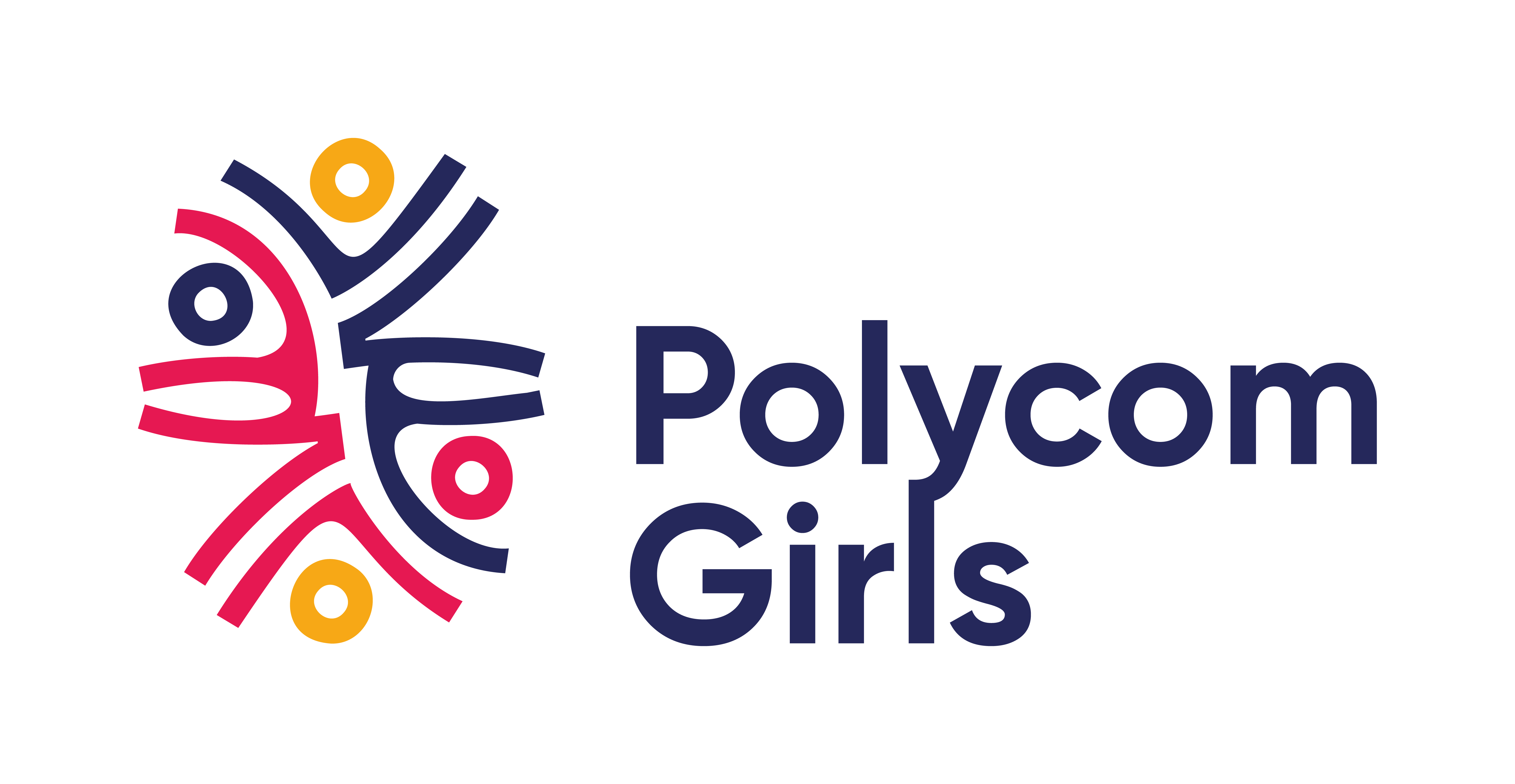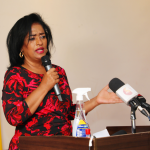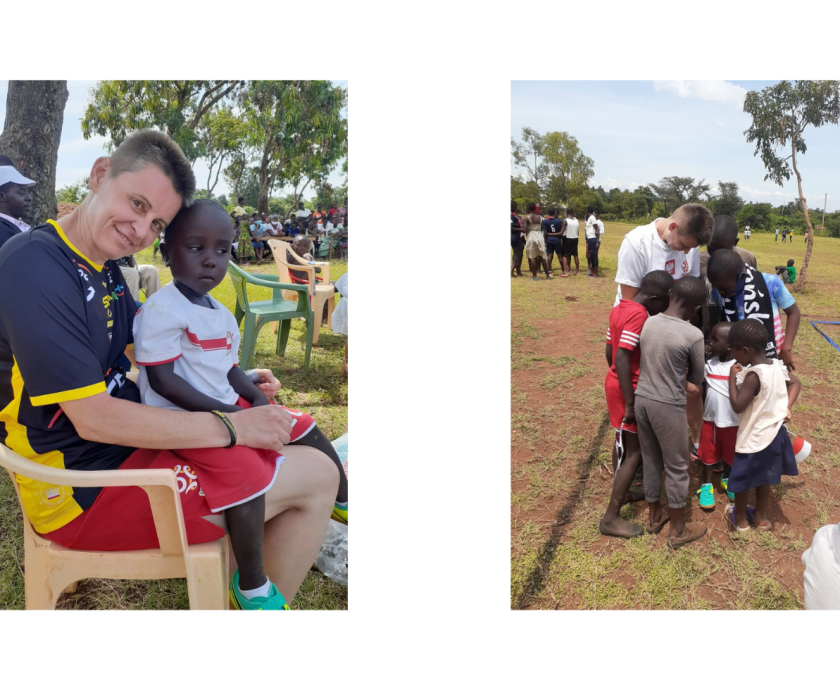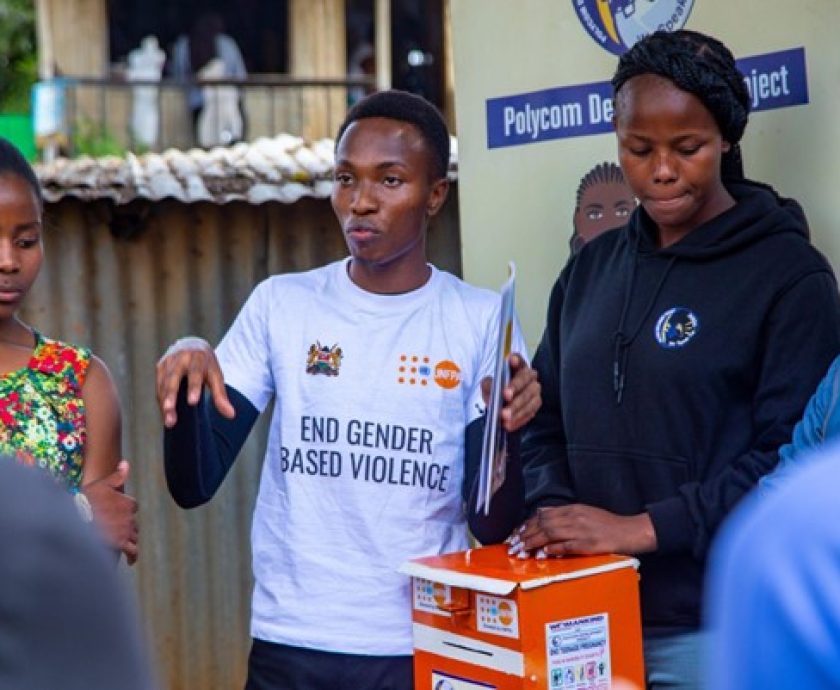Grace Akinyi ‘not her real name’ cuddles her baby looking intently at his eyes as he suckles away. Grace has gone through a lot of pressure from her family. Her mother is a single mother struggling to feed 5 children and one grandchild. This has resulted to her having violent tendencies towards Grace. As she narrates her pain, Grace can only hope for a brighter future for her and son.
Teenage pregnancy limit girl’s ability to access education and employment and are often accompanied by sexual or domestic violence. Girls have little or no access to sexual and reproductive health (SRH) information and services.
On 3rd March 2020, the government of Kenya launched a National Campaign against Teenage Pregnancies, through the National Council for Population and Development seeking an end to teen pregnancy. The campaign is focused on galvanizing communities on the need to end teen pregnancies through awareness and advocacy citing its negativity on socio-economic growth.
Data from Kenya Data and Health Survey (2014) show that 1 in every 5 girls between 15-19 years is either pregnant or already a mother. As of 2019 latest statistics from the Global Childhood Kenya has the third-highest teen pregnancy rates with 82 births per 1,000 births. According to the United Nations Population Fund Report, Kenya has recorded 378, 397 adolescent and teenage pregnancies for girls aged 10-19 years between July 2016 and June 2017, specifically, 28, 932 girls aged 10-14 and 349,465 girls aged 15-19 became pregnant.
Concurrently, over 13,000 teenage girls drop out of school annually because of pregnancy. (Kenya Data and Health Survey, 2014). Recent media reports show that 449 girls are failing to sit for their final examinations while others write examinations in maternity wards. This is a red flag on the girls’ education, health and opportunities not to mention a failure on the society as whole.
The society is also slowly deviating from the conservative traditional values and attitudes on safe sex discussion/education. Men and boys should be engaged as advocates against teenage pregnancy too. There is an urgent need to address poverty as one of the root causes of teenage pregnancy, sensitize and create awareness on the School Re-entry Policy and engage teenage girls as stakeholders to develop interventions tailored towards their needs and concerns. Bottom line is bold strategies to implement our policies for every girl at the risk of teenage pregnancy for realization of her full potential.
This project will educate young people about their SRH rights and available services by engaging them in an interactive tried-and-tested dance and movement curriculum. Service-providers will be trained and supported to improve the accessibility and quality of their provision.
Adolescent mothers and their offspring are a high-risk group broth physically and emotionally. Poverty, malnutrition, complications of pregnancy, emotional problems such as depression, drug, and alcohol use, are all risks for the mother. Children are also at greater risk for physical, cognitive, and emotional problems. It is therefore important to identify factors which influence outcome on adolescent mothers and their children to suggest interventions which will more positively affect the physical and psychological health of this increasing population.
Underpinning any COVID-19-related rise in teen pregnancies are other significant challenges, including insufficient funding for reproductive health services and a lack of comprehensive sex education in schools – which have contributed to Kenya’s alarming numbers.
Women and girls already face multiple forms of discrimination and by virtue of being teenage moms this discrimination multiplies, and the ultimate results is what we see in the world now. Teenage pregnancy limits a girl’s ability to access education and employment and are often accompanied by sexual or domestic violence. Girls have little or no access to sexual and reproductive health (SRH) information and services. It is however important to note that teenage pregnancies occur and regardless some of these teenage moms are still students, daughters and now parents.
This project will educate Teenage moms about their SRH rights and available services by engaging them in an interactive mentorship program. Service-providers will be trained and supported to improve the accessibility and quality of their provision.
[/vc_column_text][/vc_column][/vc_row]



